
Filter News
Area of Research
- Advanced Manufacturing (2)
- Biological Systems (1)
- Biology and Environment (54)
- Biology and Soft Matter (1)
- Clean Energy (65)
- Climate and Environmental Systems (1)
- Computational Biology (1)
- Computational Engineering (1)
- Computer Science (2)
- Electricity and Smart Grid (1)
- Fusion and Fission (28)
- Fusion Energy (7)
- Isotope Development and Production (1)
- Isotopes (7)
- Materials (75)
- Materials Characterization (1)
- Materials for Computing (12)
- Materials Under Extremes (1)
- National Security (27)
- Neutron Science (29)
- Nuclear Science and Technology (16)
- Quantum information Science (1)
- Supercomputing (70)
News Type
News Topics
- (-) Advanced Reactors (18)
- (-) Biomedical (45)
- (-) Climate Change (69)
- (-) Cybersecurity (31)
- (-) Frontier (37)
- (-) Fusion (42)
- (-) Grid (38)
- (-) Materials Science (93)
- (-) Polymers (20)
- 3-D Printing/Advanced Manufacturing (80)
- Artificial Intelligence (74)
- Big Data (29)
- Bioenergy (73)
- Biology (79)
- Biotechnology (17)
- Buildings (30)
- Chemical Sciences (50)
- Clean Water (15)
- Composites (15)
- Computer Science (138)
- Coronavirus (34)
- Critical Materials (12)
- Decarbonization (62)
- Education (4)
- Element Discovery (1)
- Emergency (2)
- Energy Storage (69)
- Environment (136)
- Exascale Computing (33)
- Fossil Energy (5)
- High-Performance Computing (68)
- Hydropower (5)
- Isotopes (43)
- ITER (4)
- Machine Learning (34)
- Materials (99)
- Mathematics (5)
- Mercury (9)
- Microelectronics (3)
- Microscopy (36)
- Molten Salt (3)
- Nanotechnology (42)
- National Security (52)
- Net Zero (11)
- Neutron Science (96)
- Nuclear Energy (78)
- Partnerships (42)
- Physics (52)
- Quantum Computing (29)
- Quantum Science (56)
- Renewable Energy (2)
- Security (21)
- Simulation (38)
- Software (1)
- Space Exploration (15)
- Statistics (2)
- Summit (50)
- Sustainable Energy (74)
- Transformational Challenge Reactor (7)
- Transportation (52)
Media Contacts
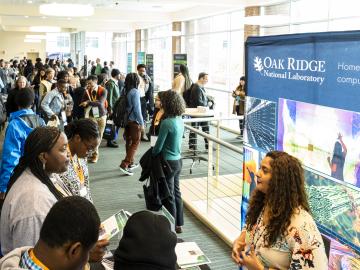
ORNL and the University of Tennessee, Knoxville, co-hosted the 2023 National Society of Black Physicists Annual Conference with the theme "Frontiers in Physics: From Quantum to Materials to the Cosmos.” As part of the three-day conference held near UT, attendees took a 30-mile trip to the ORNL campus for facility tours, science talks and workshops.
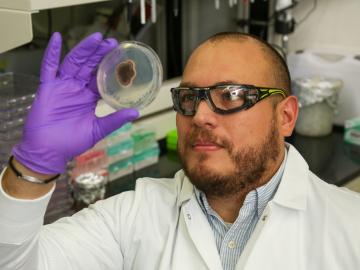
New computational framework speeds discovery of fungal metabolites, key to plant health and used in drug therapies and for other uses.

Corning uses neutron scattering to study the stability of different types of glass. Recently, researchers for the company have found that understanding the stability of the rings of atoms in glass materials can help predict the performance of glass products.

In summer 2023, ORNL's Prasanna Balaprakash was invited to speak at a roundtable discussion focused on the importance of academic artificial intelligence research and development hosted by the White House Office of Science and Technology Policy and the U.S. National Science Foundation.
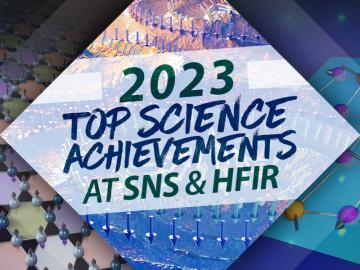
The 2023 top science achievements from HFIR and SNS feature a broad range of materials research published in high impact journals such as Nature and Advanced Materials.
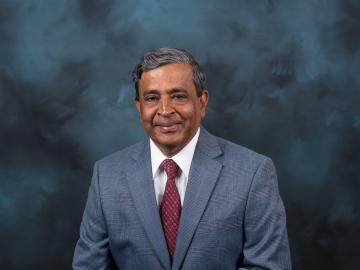
ORNL will lead a new DOE-funded project designed to accelerate bringing fusion energy to the grid. The Accelerate award focuses on developing a fusion power plant design concept that supports remote maintenance and repair methods for the plasma-facing components in fusion power plants.
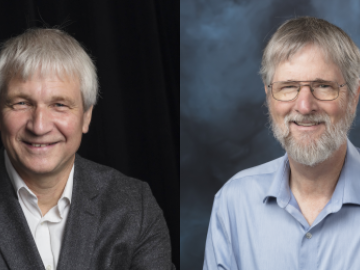
Two fusion energy leaders have joined ORNL in the Fusion and Fission Energy and Science Directorate, or FFESD.
A team from DOE’s Oak Ridge, Los Alamos and Sandia National Laboratories has developed a new solver algorithm that reduces the total run time of the Model for Prediction Across Scales-Ocean, or MPAS-Ocean, E3SM’s ocean circulation model, by 45%.
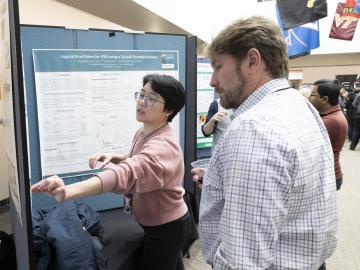
On Nov. 1, about 250 employees at Oak Ridge National Laboratory gathered in person and online for Quantum on the Quad, an event designed to collect input for a quantum roadmap currently in development. This document will guide the laboratory's efforts in quantum science and technology, including strategies for expanding its expertise to all facets of the field.
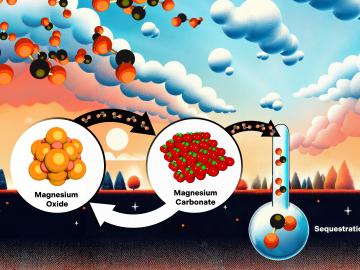
Magnesium oxide is a promising material for capturing carbon dioxide directly from the atmosphere and injecting it deep underground to limit the effects of climate change. ORNL scientists are exploring ways to overcome an obstacle to making the technology economical.


